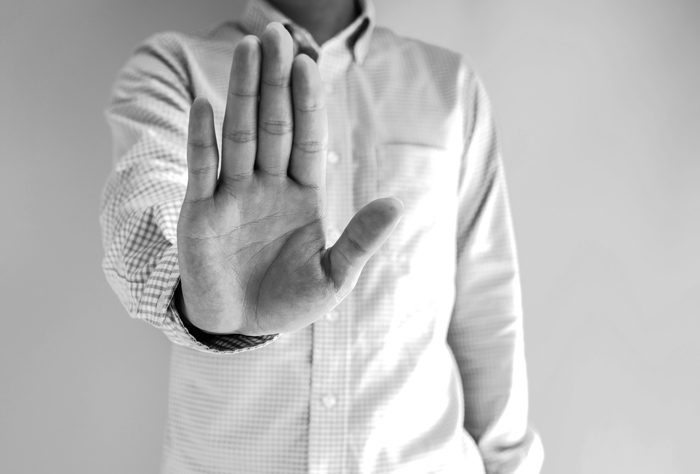What Is HALT?
 Many people in recovery have found that the stress and uncertainty of the COVID-19 pandemic have made it more difficult to manage their cravings. However, keep in mind the HALT acronym, which can help you remember your triggers and proactively manage your recovery. HALT stands for:
Many people in recovery have found that the stress and uncertainty of the COVID-19 pandemic have made it more difficult to manage their cravings. However, keep in mind the HALT acronym, which can help you remember your triggers and proactively manage your recovery. HALT stands for:
- Hungry
- Angry
- Lonely
- Tired
Am I Hungry?
‘Hungry’ is at the top of the list, when you consider the HALT acronym, and for good reason. Hunger makes it hard to resist any sort of temptation—including the craving for drugs or alcohol. However, being hungry doesn’t mean you should reach for candy, cookies, chips, or other comfort foods. Try to think of food as fuel for your body. A poor-quality diet leaves you feeling sluggish and irritable. A healthy diet keeps your mind and body in balance—making it easier to continue to move forward with your recovery.
Healthy eating should involve focusing on whole grains and fruits and vegetables, with low-fat dairy and lean protein as needed. Drink plenty of water to stay hydrated, and choose snacks such as nuts or citrus fruit to naturally lower stress levels.
Am I Angry?
Being angry about COVID-19 is understandable. People have become seriously ill, and many have died. Job losses and reduced work hours are common. Children are out of school, routines are disrupted, and nobody knows when life will get back to normal.
It’s essential that you find healthy ways to deal with your anger during the coronavirus pandemic. Try writing about your feelings in your journal, meditating, calling your sponsor, or talking to a trusted friend. If it’s the news coverage that’s getting to be too much, turn off the TV, put down your smartphone, and head outside for a digital detox to clear your head.
Am I Lonely?
COVID-19 has left many people feeling lonely. It takes extra effort to keep in touch with your sober support network due to the safety restrictions that are in place to prevent the spread of the virus.
Some quarantine-approved ways to socialize include:
- Use Zoom or FaceTime to video chat with friends and family.
- Enjoy a movie night with loved ones using the Prime video watch party feature or the Netflix Party extension for Chrome.
- Play video games together using the online options for Xbox, Nintendo Switch, or PlayStation 4. If you don’t have access to a gaming system, look for Facebook or smartphone games that let you play with friends.
- If your in-person 12-Step groups have been suspended, attend virtual meetings.
- Take advantage of telemedicine options to connect with your care team.
In recovery, keep in mind that loneliness is sometimes confused with simple boredom. If you’re mostly in need of a distraction, consider this the perfect time to explore a new hobby. Baking, putting together puzzles, gardening, and painting have all enjoyed a resurgence in popularity since the pandemic began.
Keep in mind that most cravings only last 15-20 minutes. A temporary distraction—whether it’s a conversation with a friend or time spent on a favorite hobby—is often all you need to stay on track with your recovery.
Am I Tired?
‘Tired’ is last, but certainly not least in the HALT acronym. Being tired zaps your motivation and problem-solving skills—leaving you feeling like you’re powerless over cravings. It’s vital that you continue to get the rest your body needs. Healthy adults typically need seven to nine hours of sleep each night. Good sleep hygiene involves keeping a consistent sleep schedule, cutting out caffeine by midday, avoiding electronics before bed, and keeping your bedroom cool and dark.
Some insomnia is normal during the early stages of recovery as the body adjusts to living without drugs and alcohol. However, if you’re consistently having trouble sleeping at night, you might not be getting enough exercise during the day. For most of us, COVID-19 has resulted in a significant decrease in physical activity. When you’re working at home and most social events are canceled, you’re naturally incorporating less movement into your day. This means you need to be proactive about getting the exercise your body needs.
Some ways to be more active include:
- Take a walk outside after dinner.
- Lift hand weights while watching your favorite TV shows.
- Walk or jog in place while talking on the phone.
- Turn on your favorite music and have a dance party in the living room.
- Follow along with a free YouTube workout.
- Put reminders on your phone to help you make exercise a daily habit.
We’re Always Here for You
If COVID-19 cravings have caused a relapse or you think you might be in need of additional recovery support, we encourage you to reach out to your care team at Waypoint Recovery Center. As an essential service provider, our South Carolina residential drug and alcohol addiction treatment center will remain open throughout the coronavirus pandemic. We are closely monitoring the situation and following all CDC-recommended protocols to keep clients and staff safe while we work to provide evidence-based addiction treatment. If you’re committed to changing your life for the better, we can help.





